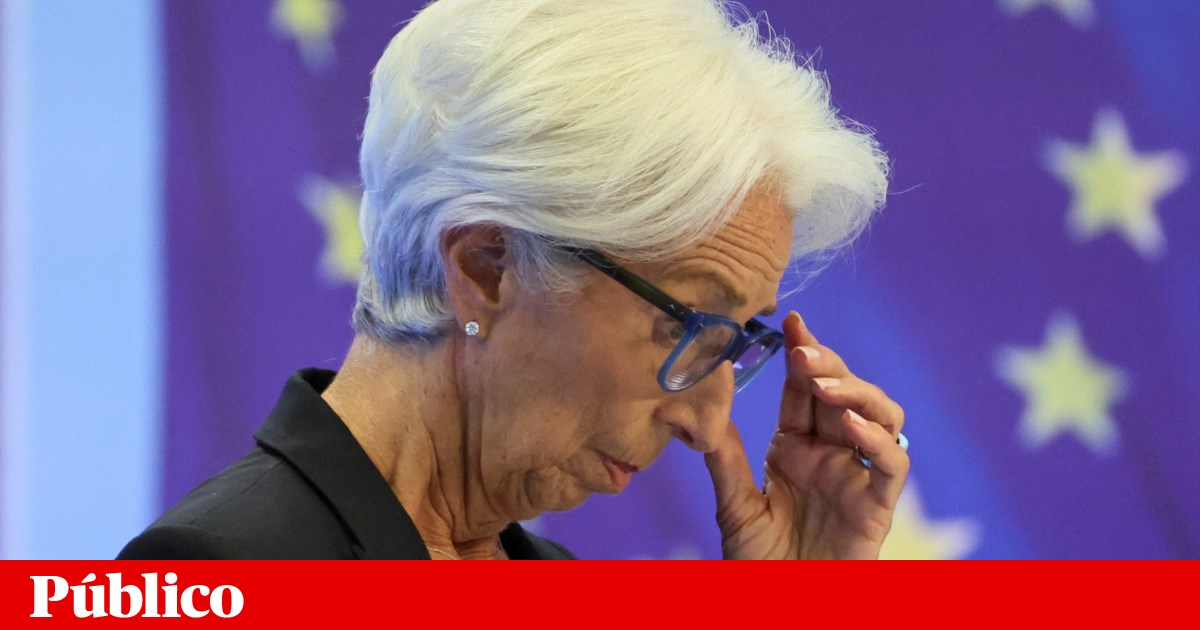In fulfillment of what the markets expected, the European Central Bank, on Thursday, raised its benchmark interest rates by 0.75 percentage points. This is the third consecutive strong interest rate move in the Eurozone, underlining the increasing urgency the monetary authority is feeling to take measures to curb the escalation of inflation. For the Portuguese, the result is a worsening of the credit premiums paid to the banks.
The decision by the European Central Bank Governing Council set the ECB refinancing rate (the rate at which the central bank lends money to commercial banks in the short term) to 2% and the deposit rate (the rate at which commercial banks may deposit their reserves with the central bank ) by 1.5%.
Last July, after a long period in which rates were set at historic lows, the European Central Bank began the process of raising interest rates. at that time, Boarding It was 0.5 percentage points.
In September, the boarding was done It was 0.75 pointsThe same dose was now repeated at the October meeting. Further increases are expected in the coming months.
The Christine Lagarde-led entity reveals, with this new significant rise in rates, that it is in a hurry to raise funding costs in the eurozone to even higher levels. The idea is that it is necessary, as soon as possible, to prevent families and businesses from viewing the current high inflation as permanent, something that will change their behavior and contribute to continued inflation.
By raising interest rates, the ECB is trying to reduce demand in the economy, removing consumption capacity from households (who now have to take on larger loan repayments and have more difficulty accessing credit) and firms the ability to invest. By lowering demand, the central bank hopes that prices of balanced goods will eventually fall, or at least not rise as much as they are now.
The problem is that while trying to control inflation, the central bank may also help push the economy into recession. Signs of a deteriorating environment are evident in the Eurozone and this central bank’s blow to demand is adding to the downside pressures being felt in the economy.
In September, the inflation rate in the euro area reached 9.9%, the highest value since the creation of the single currency. In Portugal, this indicator (harmonized) was 9.8% in the same period. Regarding the economy, although the Eurozone still recorded a positive growth rate in the second quarter of this year (Portugal’s GDP variance was zero), it is expected that in the third and fourth quarters, the economic growth rate could turn out to be negative, which It will confirm that the eurozone at this moment is already in a technical recession.
In addition to the negative impact that can be recorded on economic activity, for Portuguese families and companies, the effect of this measure from the European Central Bank is almost immediate, since the increase in the reference rates of the Central Bank is reflected in the level of interest rates Euribor, which serves as an indicator for the vast majority of credits granted in the state.
On Wednesday, in the parliamentary debate on the proposed state budget for 2022, Antonio Costa swipe strategy Followed by the European Central Bank in the fight against inflation. “The successive increases in interest rates do not contribute to controlling inflation, but rather contribute to increasing the risks of recession in European economies,” he said, in another reference to The growing difference in politics between the central bank and governments in the eurozone.
In addition to the rise in the reference interest rate, the Council of the European Central Bank announced, in the statement published today, Thursday, that it decided to adjust the interest rates applied in the long-term loan program granted to banks in the euro area during the pandemic. . (TLTRO III).
These loans were granted at very low interest rates, even negative, to ensure that liquidity could reach the economy, but now that the ECB’s policy objective is the other way around – the goal being that the interest rates applied to these loans converge with the central bank’s reference rates.
Portuguese banks are among the ones that have taken advantage of this very cheap ECB credit to secure the funds they need, and they can now see these favorable access terms gradually being withdrawn.
Christine Lagarde, this Thursday at the beginning of the afternoon, will explain in a press conference the measures taken in more detail.

“Writer. Analyst. Avid travel maven. Devoted twitter guru. Unapologetic pop culture expert. General zombie enthusiast.”

